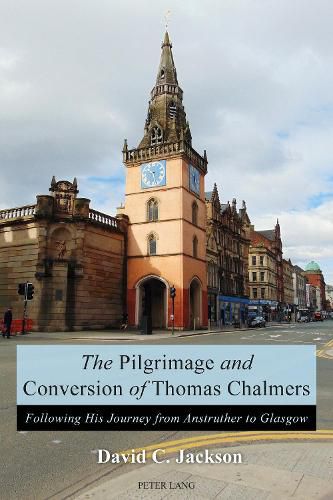Readings Newsletter
Become a Readings Member to make your shopping experience even easier.
Sign in or sign up for free!
You’re not far away from qualifying for FREE standard shipping within Australia
You’ve qualified for FREE standard shipping within Australia
The cart is loading…






This book follows the life and work of Thomas Chalmers (1780-1847) from his childhood in Anstruther to the end of his ministerial career in Glasgow in 1823. He became a theologian, minister and Scottish reformer and is best remembered for his involvement in the Disruption of 1843. Following Chalmers’ career up to the end of his Glasgow period offers a range of valuable insights into the human, spiritual and theological dimensions of a man who was once described by Thomas Carlyle as the chief Scotsman of his age . It has been decades since Chalmers and his work have received any notable scholarly attention and this book attempts to unravel his complicated nature by pursuing a forensic investigation into his communitarian ideology and attitude towards social reform. New facts have come to light, not least the apparent reversion of Chalmers’ conversion, recognised and discussed here for the first time, allowing the reader to form a more accurate picture of his legacy within Scottish religious history. As the author meticulously unravels his subject’s disturbing psychological mindset, he provides a compelling critique of the Church of Scotland and examines the role of John Bunyan’s Mr Christian as Chalmers’ model and mentor.
$9.00 standard shipping within Australia
FREE standard shipping within Australia for orders over $100.00
Express & International shipping calculated at checkout
This book follows the life and work of Thomas Chalmers (1780-1847) from his childhood in Anstruther to the end of his ministerial career in Glasgow in 1823. He became a theologian, minister and Scottish reformer and is best remembered for his involvement in the Disruption of 1843. Following Chalmers’ career up to the end of his Glasgow period offers a range of valuable insights into the human, spiritual and theological dimensions of a man who was once described by Thomas Carlyle as the chief Scotsman of his age . It has been decades since Chalmers and his work have received any notable scholarly attention and this book attempts to unravel his complicated nature by pursuing a forensic investigation into his communitarian ideology and attitude towards social reform. New facts have come to light, not least the apparent reversion of Chalmers’ conversion, recognised and discussed here for the first time, allowing the reader to form a more accurate picture of his legacy within Scottish religious history. As the author meticulously unravels his subject’s disturbing psychological mindset, he provides a compelling critique of the Church of Scotland and examines the role of John Bunyan’s Mr Christian as Chalmers’ model and mentor.